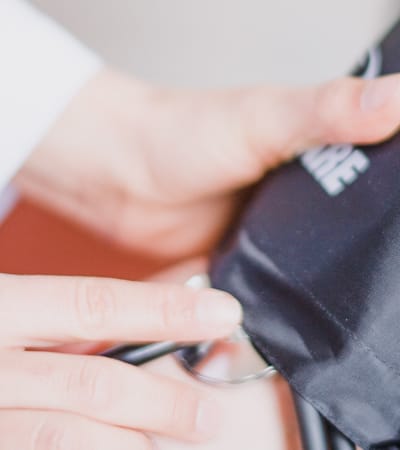Procedures




GI Procedures & Treatments We Offer
Our specialists at Center for Digestive Health can conduct a variety of GI surgical procedures designed to help you manage your GI disorder. We also have a range of nonsurgical treatment options for our patients. If you’re ready to take control of your gastrointestinal issues, reach out to our team today.
Call Now
(248) 844-9710
Endoscopic Procedures
Colonoscopy
Colonoscopies provide physicians with a means of viewing the lining of the colon. During a colonoscopy, a physician will search for anything abnormal within the colon, including polyps and cancer. The procedure is conducted using a long tube with a video camera attached at one end. The tube is inserted into the rectum.
EGD
Patients can receive esophagogastroduodenoscopies (EGDs), which enable physicians to see the lining of the upper gastrointestinal tract. The procedure is conducted using a long tube with a video camera attached at one end. The tube is inserted into the mouth. Patients may receive an EGD with Bravo or an EGD with dilation.
Endoscopic Ultrasound (EUS)
During an endoscopic ultrasound, a long, flexible tube is inserted through the patient’s mouth, then into the stomach and small intestine. The tube has an ultrasound attachment that permits the physician to take ultrasound images of the bile ducts and pancreas.
Endoscopic Ultrasound (EUS)Endoscopic Retrograde Cholangiopancreatogram (ERCP)
Endoscopic Retrograde Cholangiopancreatogram (ERCP)
An ERCP allows physicians to diagnose and treat conditions affecting the biliary and pancreatic ducts. It involves the use of an endoscope to view the stomach and duodenum, and X-ray images of the biliary and pancreatic ducts.
Endoscopic Mucosal Resection (EMR)
EMR procedures involve removing abnormal tissue, polyps and growths from the digestive tract. An endoscope is passed through the mouth to the area of growth, and then the endoscope removes the tissue and cauterizes the area. The removed tissue can then be collected and biopsied.
Non-Endoscopic Procedures
24-Hour PH Probe
A 24-hour PH probe is used to monitor the quantity of acid that travels up into the esophagus over an extended period of time.
Capsule Endoscopy
Simply requiring a 12-hour fast along with prescription colon prep prior to the procedure, the Capsule Endoscopy procedure begins when the patient swallows the capsule with a small amount of water. Data and images are transmitted as the capsule passes through the digestive system and are received by the data recorder affixed to a belt worn by the patient.
After approximately eight hours, the patient returns the Data Recorder to our office for processing by a dedicated computer workstation. The computer’s RAPID® Application Software enables us to view and analyze the resulting patient video report.
Esophageal Manometry
During esophageal manometry, physicians measure the amount of pressure placed on the upper esophageal sphincter, the lower esophageal sphincter and the body of the esophagus.
Flexible Sigmoidoscopy
Flexible sigmoidoscopy is a procedure that enables your physician to examine the lining of the rectum and a portion of the colon (large bowel) by inserting a flexible tube that is about the thickness of your finger into the anus and advancing it slowly into the rectum along the length of the lower part of the colon.
Hemorrhoid Banding
Hemorrhoid Banding is a non-surgical treatment for symptomatic internal hemorrhoids using endoscopic placement of a rubber band placed on the hemorrhoid in the rectum
Liver Biopsy
Liver biopsies can alert physicians to the presence of disease or damage to the liver. The procedure involves taking a sample of liver tissue from the liver after administering a local anesthetic.
Minimally Invasive Surgery
Capitol Colorectal Surgery is the only sub-specialty practice in mid-Michigan that regularly performs minimally invasive surgery for diseases of the colon and rectum. Our practice uses up to date minimally invasive techniques including robotic and laparoscopic approaches.
IV Infusions
Our infusions are administered by Infusion Centers of Michigan and are used to treat a variety of conditions. The infusions can administer medication, iron and hydrating fluids.
Radiofrequency Ablation
Radiofrequency ablation is used to treat patients with Barrett’s esophagus. During this procedure, a tube is used to image the esophagus and then radiofrequency signals are used to kill any abnormal cells. It results in the diseased portion of the lining of the esophagus being removed.
Ostomy
An ostomy, or stoma, is a surgically created opening between the intestines and the abdominal wall. Ostomies can be temporary or permanent.
Robotic Colon Surgery
Robotic colon surgery is a minimally invasive type of surgery, in which a surgeon is able to operate via a few small incisions with the assistance of a robotic device. Commonly referred to as laparoscopic surgery, a robotic surgical system utilizes tiny instruments and cameras to give the surgeon a high definition view of the operating site, as well as translating the surgeon’s movements into smaller, precise movements. Many common colon and rectal procedures can utilize this method.
Robotic Transanal Surgery
Robotic Transanal Surgery is a minimally invasive surgical technique that allows the surgeon to operate on problems in the mid and upper rectum without having to make an incision through the abdomen. The instruments are specially designed so that the procedure can be performed through the anus and in the rectum.
Laparoscopic Colon Surgery
A technique known as minimally invasive laparoscopic colon surgery allows surgeons to perform many common colon procedures through small incisions. Depending on the type of procedure, patients may leave the hospital in a few days and return to normal activities more quickly than patients recovering from open surgery.
Preparation for Procedures
In preparation for our procedures, we’ve provided a series of links to patient paperwork and forms to help our patients properly prepare for their upcoming procedures. To view these preparational resources, click our Patient Forms page.
The preparational resources include:
- Insurance letters.
- Consent forms and other necessary patient paperwork.
Frequently Asked Questions
What happens when I see the provider in the office?
If you haven’t visited Digestive Health Institute previously, you can expect to complete a new patient physical exam. The care provider will ask you about your medical history along with your current condition, and any other relevant concerns they may have. We ask that patients who are taking medication bring a completed medical history form along with them to their in-office appointment. Once you see the provider in the office, your provider will help you come up with a treatment plan.
What can I expect when I get a procedure done?
Your physician will review with you the reason for your procedure, if you have completed procedural preparation properly, and what the procedure will entail. You will also be handed written information with the same information and risks associated with the procedure. We highly encourage patients to speak with their physician or nurse regarding any questions or concerns they may have before the procedure. If you’re given anesthesia, it’s your responsibility to ensure that you have a means of getting home safely. We do not recommend transporting yourself home after a procedure involving anesthesia.
Will Digestive Health Institute accept my insurance?
We accept payment from most major health insurance companies including Medicare, Blue Cross/Blue Shield, Blue Care Network, Physicians Health Plan, Cofinity, Sparrow Professional Health Network, Medicaid, McLaren, Health Plus and several others. The insurance companies we accept may change at any time without notice. You must confer with our office during each visit to see if your insurance is accepted. If your insurance requires an authorization from your primary care physician, you may be asked to assist us in obtaining this authorization. All patients are responsible for all copays and deductibles at the time of service.
If you have any questions regarding your benefits or insurance coverage, please contact our Billing Department at 517-332-1200 and press “6.”
How do I get my test results?
Test results become available to you after 10 to 14 business days. You may access your results once they become available by calling 517-332-1200 and pressing “8.″ Your call will be directed to the triage nurse.

